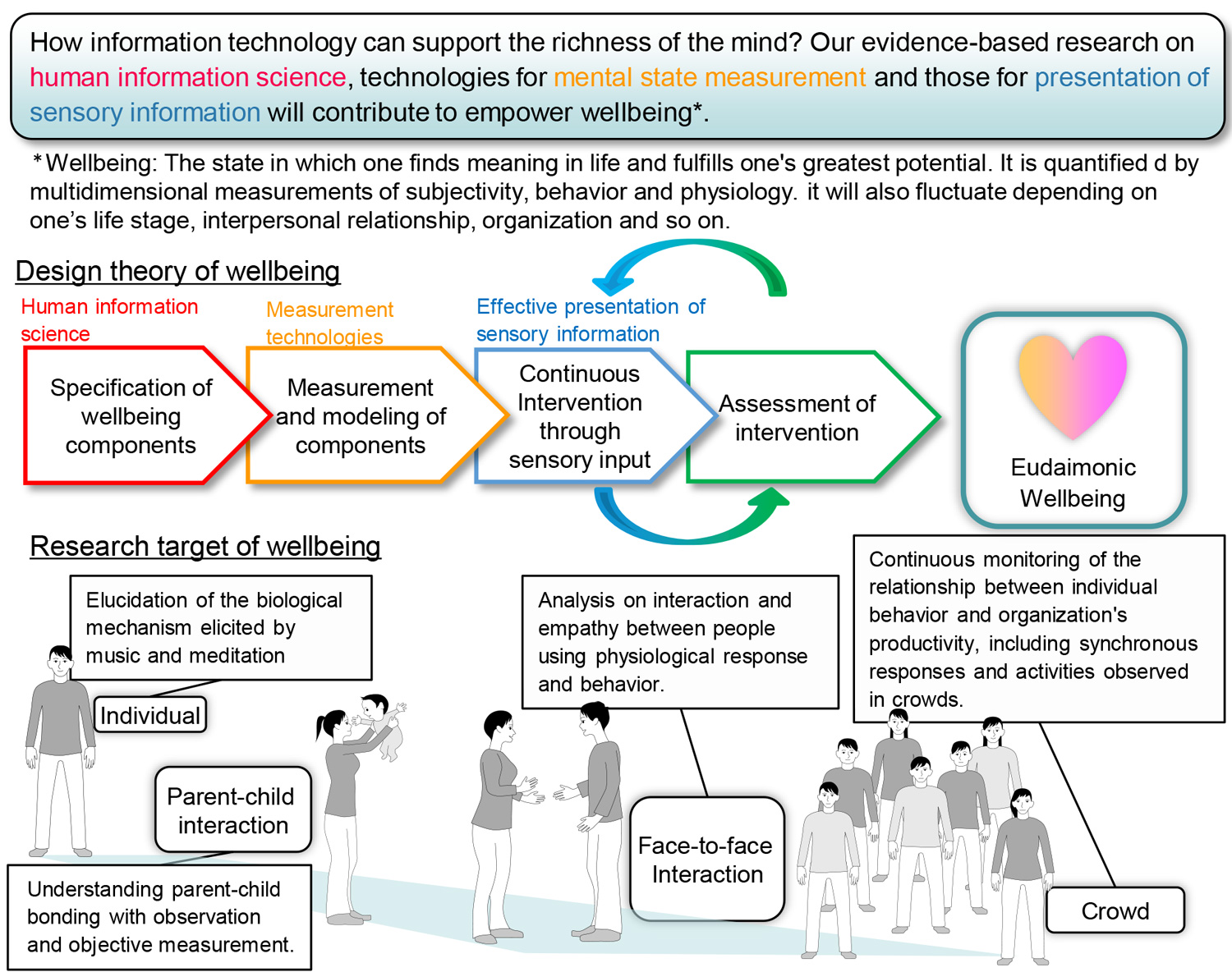
Science of Human
Measuring, understanding, and empowering wellbeing
Cross-disciplinary research toward “eudaimonic wellbeing”

Abstract
We propose an evidence-based design theory to reach an state of wellbeing, the state in which one finds meaning in life and fulfills one's greatest potential. Components of wellbeing can be identified not only at the individual level, but also in all sorts of human relations. Families, friends, organizations, and even society. The components also fluctuate depending of one’s life-stage. Together with traditional subjective reports, objective approaches such as behavioral analysis and biometric measurements are mandatory to achieve a comprehensive understanding of the components. By integrating various research methods, technologies , and findings, we set up a 4-step process ? specification of components, measurement and modeling, intervention, and assessment ? to create wellbeing indices, which will contribute to empower our eudaimonic wellbeing.
Reference
- [1] R. Calvo & D. Peters, “Positive computing,” MIT Press, 2014.
[2] H. Ando, J. Watanabe, H. Long, D. Chen, & K. Sakakura, Development of Information Technology Guidelines for Promoting Wellbeing in Japanese Culture:, In Proc. the 2nd Symposium on Computing and Mental Health (CHI 2017)





